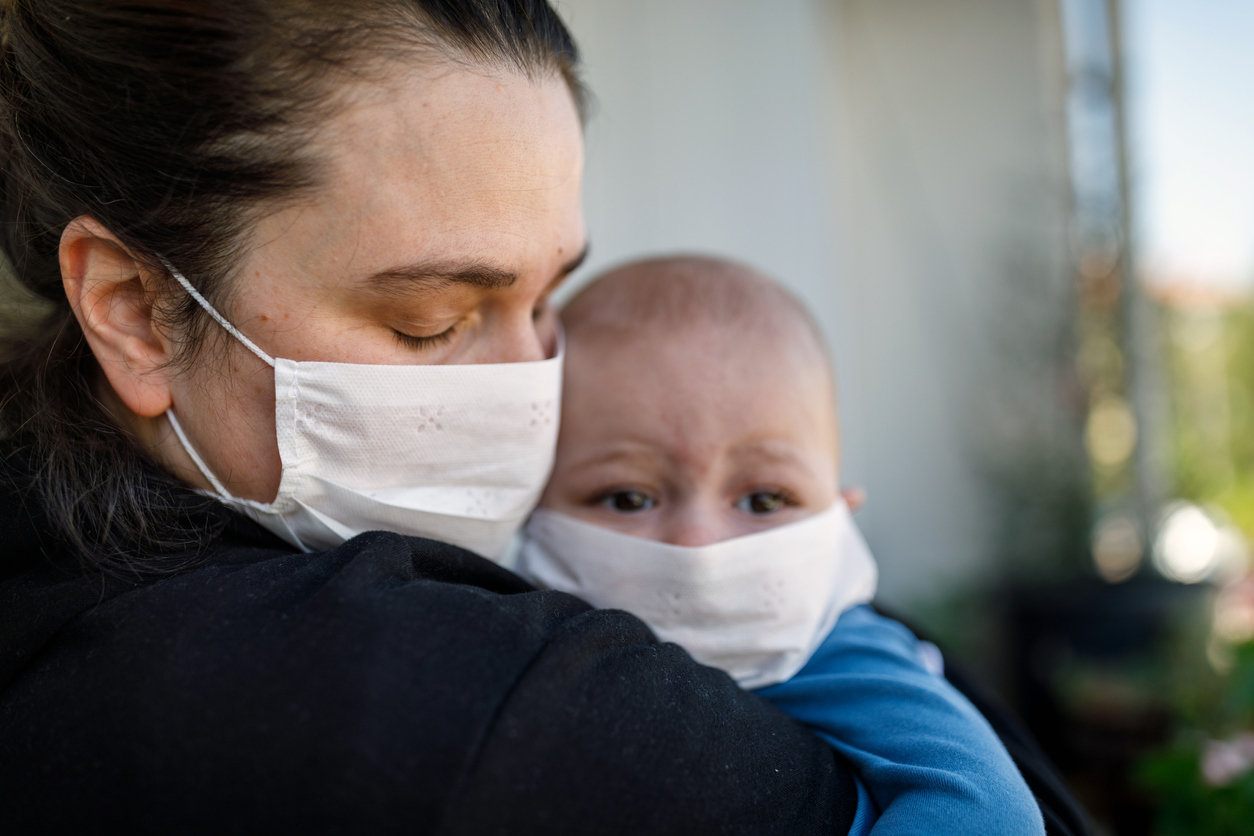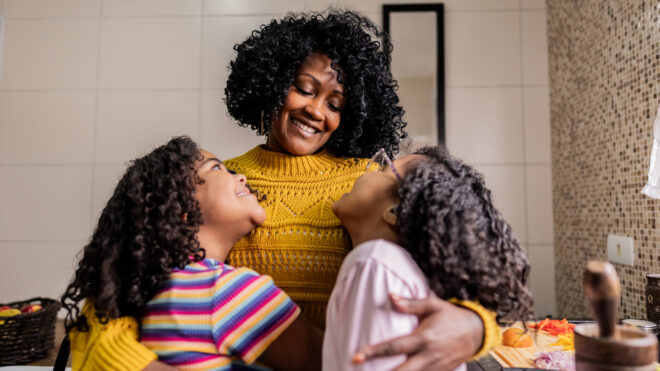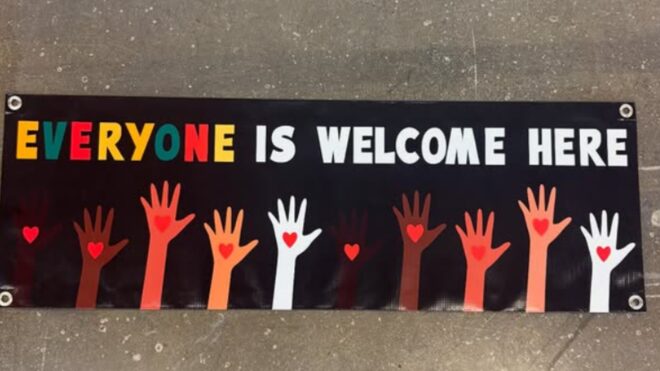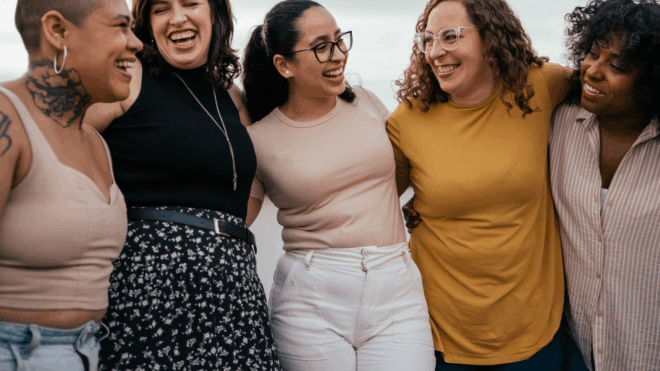
Although the Centers for Disease Control and Prevention has recommended that people begin wearing cloth face masks while outside of their homes, parents shouldn't necessarily be scooping up masks for their children of all ages. Only kids older than 2 should wear masks, according to the CDC. Here are some details parents of little ones need to know.
According to the American Academy of Pediatrics, people should wear masks in public to protect their community.
Because so many people who have COVID-19 don’t have symptoms, wearing masks can help reduce the possibility that someone with no symptoms could transmit the disease to others, the pediatric academy noted. Wearing a face covering can reduce the risk of a person's spit or infectious respiratory droplets spreading the novel coronavirus.
But the CDC does not recommend masks for children younger than 2.
This is because of their risk of suffocation.
Dr. Kevin Dahlman, medical director of Aurora Children’s Health, explained to FOX6Now, “Infants should never wear a mask. Infants can accidentally suffocate since some masks can present a choking or strangulation hazard."
This is why it's crucial to steer clear of masks marketed toward infants.
Nationwide Children's Hospital has asked mask makers to avoid targeting little ones, writing, "These products (infant masks, masks attached to pacifiers, etc.) may pose more harm than benefit in terms of safety for children under the age of 2 years old."
Instead, parents are encouraged to protect infants by practicing social distancing measures.
The pediatric academy noted that if you must go outside or to a place where you are not able to practice social distancing with an infant, cover the infant carrier with a blanket, which helps protect the baby but still gives it the ability to breathe comfortably. (Dahlman emphasized that this blanket should be placed loosely over the baby’s car seat or stroller — never over the baby.)
Do not leave the blanket on the carrier in the car or at any time when the baby and carrier are not in direct view.
Beyond that, parents should practice the same safety methods they did with their babies prior to the pandemic, according to Dahlman.
“Babies need to have nothing obstructing their breathing and should always be placed and sleeping on their back whether it is in bed or in a car seat," he elaborated.
Ultimately, the best way to protect children from the coronavirus and to prevent spread of illness is by adhering to safer at home orders and practicing social distancing. As the pediatric academy noted, as long as children of all ages can be kept at least 6 feet away from others and not be in contact with surfaces that could harbor the virus, they do not need a mask for the protection of themselves or others.




